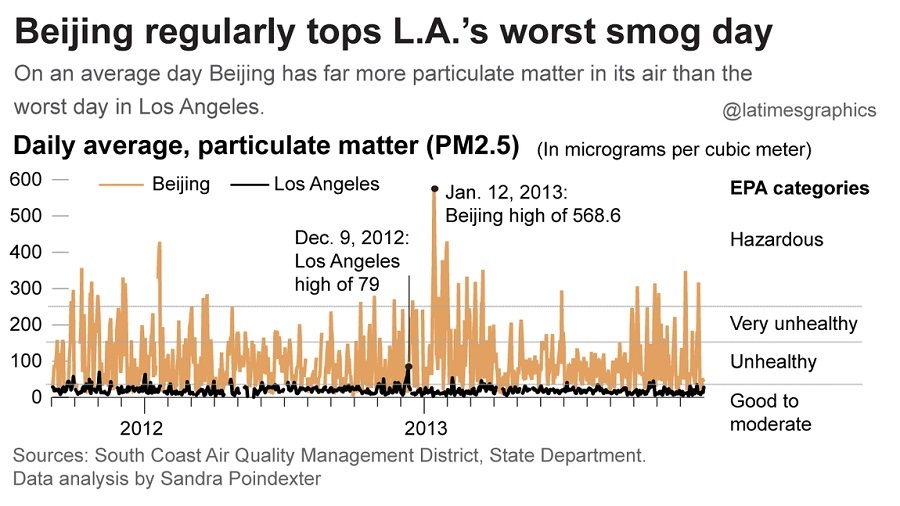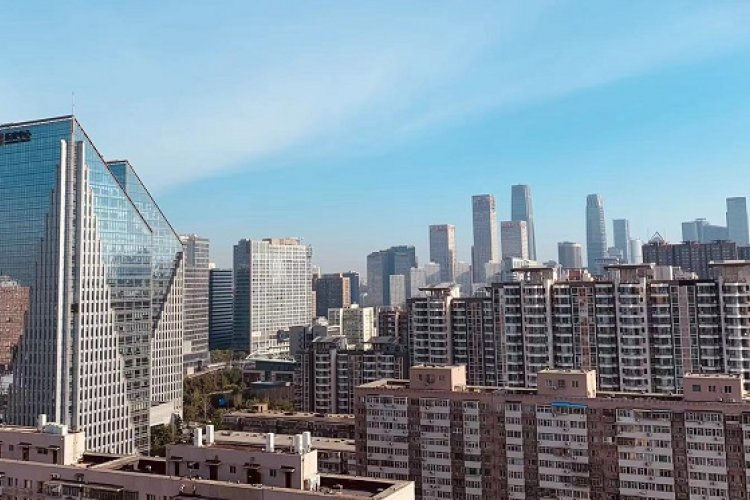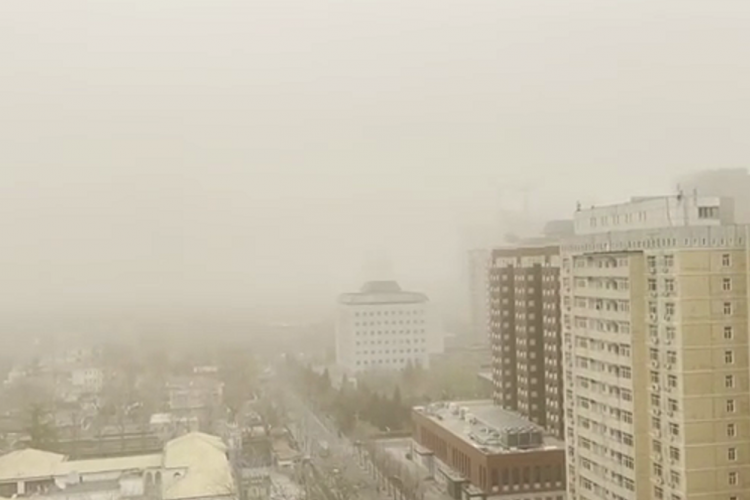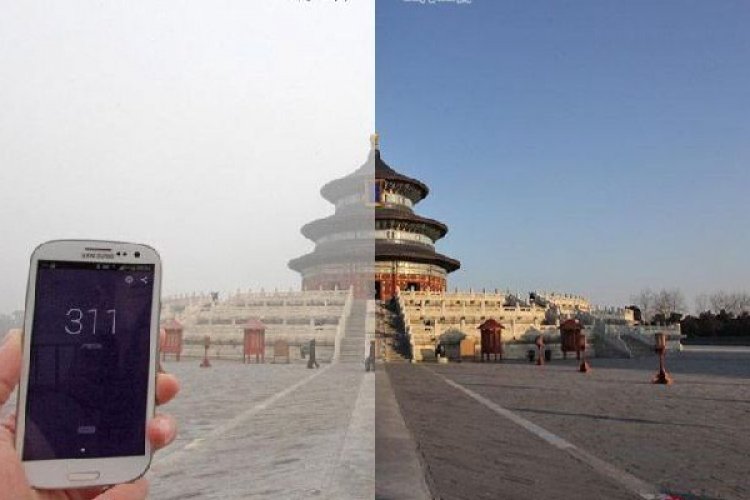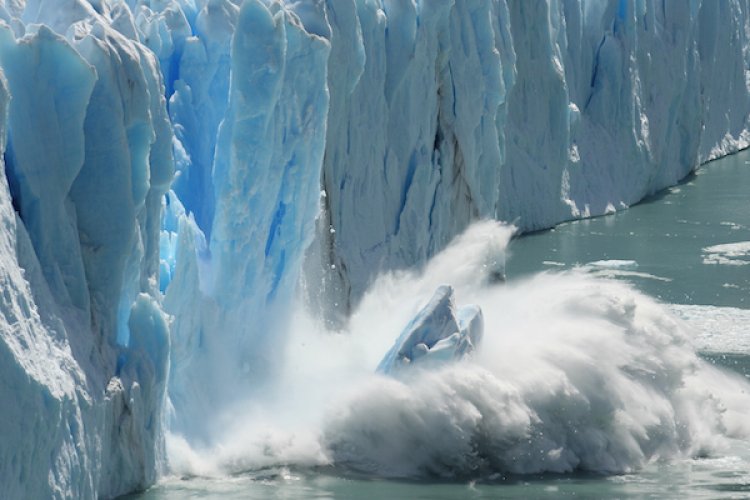A Smell of Two Cities: LA Stinks in America, but Would be a Breath of Fresh Air in Beijing
If Los Angeles' skies were above Beijing’s, they’d rate among the cleanest in China. Or so one might infer from this recent report in the Los Angeles Times, comparing air pollution in Beijing and LA.
The Times noted: “If LA were in China, it would have cleaner air than all 74 major cities tracked in 2013 by the Chinese Ministry of Environmental Protection, based on PM 2.5 levels.”
The story cites a US State of the Air report that LA’s skies are currently the worst in America. It says: “‘Los Angeles' skies are among the most foul in the United States: In the American Lung Association's 2014 national State of the Air survey, the LA/Long Beach area ranked worst in terms of ozone concentrations and third worst in terms of particulates as measured by the standard known as PM 2.5.”
The story further says, “According to US standards, an average annual PM2.5 reading of 12.4 or below is considered ‘good.’ Downtown LA's average annual reading for 2013 was 18, according to the South Coast Air Quality Management District.”
The report gets even grittier about the People’s Republic: “Even the cleanest Chinese cities are dirtier. The cleanest in China's 2013 report, Haikou, had an average annual PM2.5 reading of about 26. The filthiest, Xingtai, had a reading six times higher. Beijing, the 13th dirtiest Chinese metropolis, had a value of 90.”
We're all familiar with Beijing's bad air, but it comes as a shock to see just how much worse it can be compared to the worst the US can come up with: The worst we've seen here for the four years ending in December 2013 was a reading of 569, whereas LA's worst was 79 (for comparison's sake, Beijing has had only five days under 79 all September, and yesterday's beautiful day in Beijing rated a 65, which would make it one of LA's worst).
There is hope for us Beijingers – 50 years ago, LA's smog was much worse than it is today. Residents of LA 50 years ago frequently experienced redness of eyes, coughing, and tightness of chest – especially in Pasadena when smog would concentrate at the back of the LA basin (and this writer knows first-hand – he just asked his mother, an LA native).
They held smog alert days in the 1960s, with people donning emergency gas masks, and even building under ground smog protection bunkers. For a photo essay of LA’s smog history, click here.
LA residents (and of the US West Coast) should not snub their noses at Beijing’s air from this stinky news that says their skies are fresher than China’s – and instead offer advice. Beijing would be wise to listen.
LA’s horrific air stemmed from the natural inversion layer of its basin and because people could burn anything in their backyard up until the middle 1960s with the policies firebrand politician Sam Yorty, who ended the trash burning policies.
LA was the first city in the US to establish an environmental air policy with the Los Angeles County Air Pollution Control District in 1947, as detailed here.
And the air still is not great – because everyone is driving. LA’s sick air will likely continue, and they can also look to China for another reason why; China and Asia’s bad air gets caught up in the jet-stream and transported to the west coast of the US According to a study published earlier this year by the US National Academy of Science, “Pollution from China's coal-burning power plants is pumping up winter storms over the northwest Pacific Ocean and changing North America's weather.”
It adds, “Northwest Pacific winter storms are now ten percent stronger than they were 30 years ago, before Asian countries began their industrial boom.”
So put that in your pipe and smoke it, L.A ...
Graphic: LA Times
Related stories :
Comments
New comments are displayed first.Comments
![]() TheAirUpThere
Submitted by Guest on Tue, 09/30/2014 - 17:04 Permalink
TheAirUpThere
Submitted by Guest on Tue, 09/30/2014 - 17:04 Permalink
Re: A Smell of Two Cities: LA Stinks in America, but Would be...
Apples: L.A.'s air 2012-2013
Apples: Beijing's air 2012-2013
Looks like apples to apples to me
![]() Steven Schwankert
Submitted by Guest on Tue, 09/30/2014 - 16:45 Permalink
Steven Schwankert
Submitted by Guest on Tue, 09/30/2014 - 16:45 Permalink
Re: A Smell of Two Cities: LA Stinks in America, but Would be...
Wow, what a meaningless, apples to pineapples comparison of two cities that's decades away from having any value.
![]() Faychangbaoler
Submitted by Guest on Tue, 09/30/2014 - 11:29 Permalink
Faychangbaoler
Submitted by Guest on Tue, 09/30/2014 - 11:29 Permalink
Re: A Smell of Two Cities: LA Stinks in America, but Would be...
Don't have high hopes of this changing anytime soon guys. The only time the pollution will have any significant decrease will be when there are no more natural resources to burn, and by that time, the earth will probabaly be on it's last legs!
Validate your mobile phone number to post comments.

